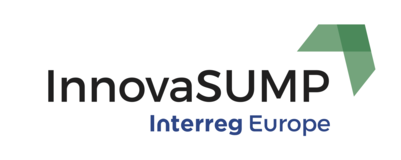The Workshop theme is the incorporation of planning for visitors at tourism destinations for sustainable mobility - particularly at the peak demand resorts - including accessibility to destinations by sustainable transport modes and improved intermodality between access travel to, and mobility within, destinations, for seamless travel.
Integration of policies for Sustainable Mobility, Accessibility & Responsible Travel with policies for sustainable tourism, requires particular attention. This is a common challenge that regional/local and transport authorities increasingly face, particularly at busy destinations with high tourism flows. Integrated policies and actions are needed towards 'S.M.A.R.T. Destinations', through interregional cooperation of destinations.
Overall objective is to improve the transport and tourism policies of tourism destinations through integrating strategies for sustainable mobility, accessibility and responsible travel with sustainable tourism development, for transition to a low-carbon economy, through sustainable multimodal mobility, accessibility & novel low-carbon transport systems, with implementation innovations, policy learning and capacity building for tourism destinations.
The following pressing issues need to be addressed:
Intermodality facilities for visitors inc. ICT & Mobile Aps; ‘Mobility as a Service’ (MaaS) solutions
Accessible tourism for all
Investments in low-carbon transport systems for mode shift to sustainable mobility modes, including Electro-Mobility & PRT/DRT
Cycling & Walking facilities for visitors, including Cyclo-tourism.
towards ‘S.M.A.R.T. destinations’.
Sustainable mobility and accessibility have been priorities in European cities and regions, with EU policies and support from Structural Funds. Sustainable and responsible tourism has also been a priority for several regions and destinations in Europe. However, the full integration of transport and tourism sectors has not been adequately addressed in terms of sustainability, innovations and in relation to their significant contribution towards a low-carbon economy.
The 1st World Conference on Smart Destinations organised by UNWTO in February 2017 stressed the contribution of multimodality and accessibility towards 'smart destinations'.
Promoting Sustainable Mobility and Accessibility provision with low-carbon transport in tourism destinations is a theme that has not been given the emphasis that is required and it deserves, particularly in busy destinations at peak seasons. SUMPs are usually geared to the normal travel demand of residents and businesses, with the special needs of tourists frequently overlooked, underestimated or given inadequate attention. Visitors, usually foreign, are not very familiar with the destination transport networks and language. There is a large scope for shifting travel demand to low-carbon transport solutions in tourism, with significant quality of life, socioeconomic, environmental and climate action benefits in European cities and regions that are established or emerging destinations. The incorporation of visitor mobility in SUMPs has not been addressed explicitly and adequately to date.
Expected results are:
Improvement of policies and strategies for effective destination management with sustainable mobility and accessibility.
Enhancement of knowledge, skills and expertise of staff responsible for policy implementation in transport & tourism management through policy learning and capacity building.
Protection of environment, through promotion of low-carbon mobility, contributing to the goals of climate action.
Outreach for awareness raising involving destination and transport authorities.
Discussion will focus on:
• How to introduce sustainable mobility and accessibility policies and measures for sustainable and responsible tourism development and promotion in partner cities?
• How to improve policy instruments and SUMPs towards incorporating sustainable mobility and accessibility facilities for responsible and sustainable tourism?
At the Workshop project partner cities will present their relevant practices, as well as experts will present the state-of-the-art, proposed innovations in the SUMP process to include sustainable tourism mobility and upgrading towards smart destinations.

